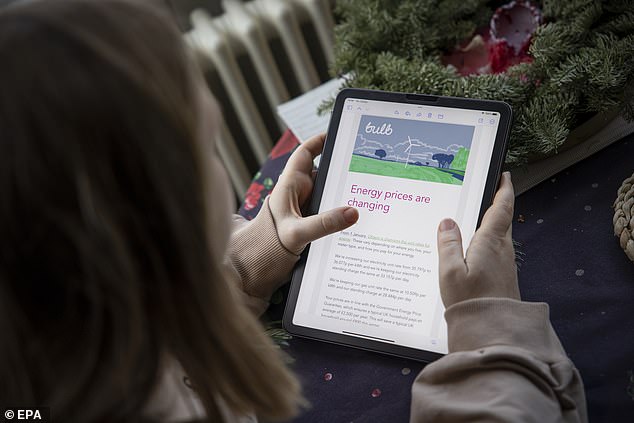Energy stealth tax could hit more than £500 to cover £6.5bn Bulb cost
>
Energy stealth tax could exceed £500 to cover the £6.5bn cost of collapsed energy giant Bulb as families grapple with rising bills
- Families have already been hit by increases in gas and electricity bills through hidden charges
- Billpayers will see a £273 increase each, but this could skyrocket under a new proposal
- ‘Standing charge’ payment will help cover costs of Bulb’s collapse £6.5bn
<!–
<!–
<!–<!–
<!–
<!–
<!–
A stealth tax on household energy bills could rise to more than £500 in plans to cover the cost of failed energy giant Bulb.
Families have already been hit with an increase in gas and electricity bills from the hidden levy costing bill payers around £273 each.
But this could skyrocket under proposals being considered by ministers to pay for the eye-watering £6.5bn cost of Bulb’s collapse.

A stealth tax on household energy bills could rise to more than £500 in plans to cover costs of failed energy giant Bulb
Many are unaware of the ‘fixed cost’ payments – which are quietly added to each bill.
The fee covers the day-to-day costs of connecting customers to their gas and electricity supplies and maintaining networks.
The Mail on Sunday revealed last week that costs have risen by almost 50 per cent in a year to pay the costs of about 30 energy companies going out of business.
That has added more than £2bn in fixed costs, an average increase of £87 since the end of 2021.
A further £230 could be added to pay for Bulb’s collapse. Costs could fall if a fall in energy prices continues through the winter.
Industry sources said the final bill for Bulb, which had 1.7 million customers when it collapsed in November 2021, will come to light in the spring.
They added that a recent drop in wholesale gas costs could cut the bill by billions if prices remained low.
The standing charge is set at a fixed rate, which does not take into account how much gas and electricity customers actually use.
Campaigners have expressed anger, saying the move would put more pressure on people struggling with a cost-of-living crisis.
Matt Copeland, head of policy and public affairs at National Energy Action said: ‘We are concerned that if the costs of Bulb’s failure were passed on in the same way as other suppliers, the increase in standing charges would be significant. causing acute damage to low-income households in the midst of an energy crisis.


Many are unaware of the ‘fixed cost’ payments – which are quietly added to each bill
BEIS and Ofgem must work together to ensure that Bulb’s costs, which have been significant and exceptional, should not be passed on to energy customers through increased fixed charges in a way that harms those most affected by the crisis affected.’
Cash-strapped retirees may be most affected by the increase, as they pay the same fixed costs as millionaires who live in large, well-heated homes.
The levy is a stand-alone levy and should not have been impacted by the massive rise in wholesale energy prices worldwide, exacerbated by the Russian invasion of Ukraine.
Energy regulator Ofgem approved the use of the levy to cover the costs of the market’s failed regulation, which led to around 30 companies going out of business in less than two years.
Dame Clare Moriarty, chief executive of Citizens Advice, has given assurances to business secretary Grant Shapps that Bulb’s controversial bailout will not strain bill payers.
She warned, “This is really a levy on customer bills.”
Like other suppliers that failed during the energy crisis, Bulb collapsed because it was not financially prepared for a sudden spike in energy prices.
BEIS declined to comment on when a decision would be made.
